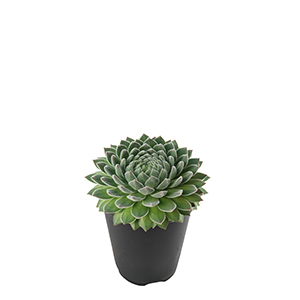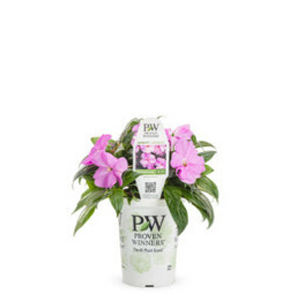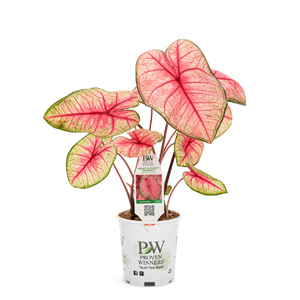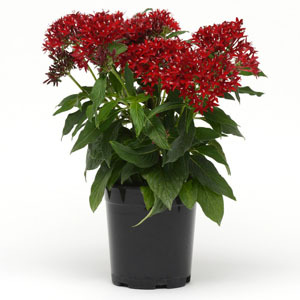
Light Needs

Mature Height

Mature Spread
Bright red, perfect shaped, 4 ounce fruits will be borne on this early ripening tomato. Tomatoes by the Fourth of July? Go on with you now! Oh yes! Ripening in less than two months, Fourth of July tomatoes can be the perfect slicing tomato to add to that picnic salad or sandwich this summer. Start these beauties indoors about 6 to 8 weeks before your last frost and plant them out when the danger of the last frost has passed.
Fourth of July Tomato Plant Care
Tomatoes fruit better in cool to warm weather and will take a break in setting blooms and fruit when it gets too hot, but will resume when the weather cools down. If you would like to start your tomatoes in a temperature controlled greenhouse in late winter, be sure to plant them out when it is warm enough outside for best fruiting as a greenhouse may be too warm for the plants as the summer approaches. Plant your seeds in a seed starting soilless mix about 8 weeks before your known last frost date. Sow them ¼ inch deep. They will sprout in 7 to 14 days. An average temperature of 75 degrees promotes good germination. Mist plants frequently, not letting them dry out or get too wet. Keep a fluorescent or a LED light fixture about four inches from the soil surface. Move it up as seedlings grow. When the plants are three to four weeks old, pot them up into larger containers if you are growing them in containers, or plant them in the ground after hardening them off if they've been grown indoors. To harden them off, move them outside in the shade for an hour or two at first, then gradually increase the time and the amount of sun until they are ready to be outdoors full time.
Growing Fourth of July Tomato Plants
Plant in full sun for best results, and plant in well draining rich garden soil, well amended with rotted compost material. Once you have planted your tomatoes outdoors, your 49 days until maturity will start. Plant tomatoes deeper than the soil level in the pot, especially if they have become leggy. Dig a trench horizontally and lay the root ball and most of the stem in the trench, and cover it with dirt. Leave 2 to 4 inches of stem and leaves above the soil level. The tomato will produce roots all along the underground stem, gathering more nutrients and producing better results for you. Water daily until well established and then water weekly or as needed. Do not let them dry out to the point of wilting. Apply a tomato fertilizer when planting it out. Add support like a tomato cage, stake or a trellis. Clip any suckers (branches that won’t fruit) along the first six to eight inches of the stalk. This will keep the lowest leaves well away from splashing water and the soil, reducing the chances for tomato blight or other plant diseases.
Tomatoes are one of the easiest garden plants to grow in containers. Provide a stake, trellis or tomato cage and pot them up in large enough planters to be able to handle a wind load as the tomato will be top heavy when fully leafed out and full of fruit. A raised bed garden or a large planter works great, even on balconies in your apartment. Fresh fruit right at your fingertips. Make sure your container has holes in it for drainage. If you must use a tray below to protect finished surfaces, be sure to put rocks in it so the pot does not sit in the water. Fourth of July tomatoes are indeterminate, meaning they will continue to grow upward, sometimes reaching 10 feet in height, and will continue to set fruit until the first frost/freeze wipes them out. Support your tomatoes well when they are indeterminate.
Watering Fourth of July Tomatoes
Water container plants daily as long as they drain well. In ground plants will have a reserve moisture, especially if you apply 3 to 4 inches of good quality mulch to cut down on weeds and to help retain that moisture. Tomatoes are heavy drinkers and need a consistent ground level water source, sometimes daily in hot weather. Consider using underground irrigation for large gardens, and a soaker hose for smaller areas to keep water and potential bacteria and fungus from splashing up from the soil. This is crucial to your success. Time spent on providing the safest most consistent watering method will be time well spent.
Feeding Fourth of July Tomato Plants
There are many organic tomato fertilizers available on the market from your local hardware store. Tomatoes are heavy feeders. They prefer a slightly acidic pH range of 6.0 to 6.8, but have been known to do well in as low as 5.5. If you prefer a natural way to feed your tomatoes, a well rotted compost worked into the top two inches of the soil every few weeks will do wonders for your plants. Tomatoes are susceptible to blossom end rot. This means the tomato plant is unable to take up enough calcium from your soil. You can find soil amendments to use to right the balance in your soil and solve this problem. Doing so as soon as the problem is noted will give you a higher yield for these indeterminate tomatoes.
Interesting Facts: Tomatoes were once thought to be poisonous by Europeans and it took a long time for them to accept them as a food source. They are native to South and Central America. The indigenous people, the Aztecs, gave the world the word tomato, adapted from the native word tomatl. Tomatoes are loaded with Vitamin C, potassium, folate and Vitamin K, and contain lycopene, an antioxidant purported to promote great health benefits when the tomato is cooked. Once you taste homegrown vine ripe tomatoes, you will be hard pressed to ever eat a store bought tomato again.
Fourth of July Tomato Plant Information
| Common Name: Fourth of July Tomato |
| Botanical Name: Solanum lycopersicum |
| Plant Type: Tomato – Slicer |
| Edible Type: Vegetable |
| Fruit Size: 4 oz |
| Light Exposure: Full Sun (+6 hrs.) |
| Spacing: 24 - 36" (61 - 91cm) |
| Height: 48 - 60" (122 - 152cm) |
| Width: 24 - 36" (61 - 91cm) |
| Brand: BURPEE® |
| Tomato Type: Slicer Tomato |
- SKU:
- TOMFJP
Please Note: The pictures below are to give a general representation of the different container sizes. The actual size/ages of plants are estimates and will vary based on type of plant, time of year, last pruning & many other factors.

Also Known As:
3.5" Container
Plant Age:
~ 6 months
Plant Size:
~ 3"-6"
Pot Size:
~ 4.5"H x 3.75"W
Volume:
~1.42 quarts

Also Known As:
4.25" Container
Plant Age:
~ 6 months
Plant Size:
~ 3"-6"
Pot Size:
~ 4.93"H x 4.25"W
Volume:
~1.56 pints

Also Known As:
Quart
Plant Age:
~ 6 months - 1 year
Plant Size:
~ 4"-8"
Pot Size:
~ 4.75"H x 4.5"W
Volume:
~1.50 quarts

Also Known As:
#1 Container
1 Gallon
Plant Age:
~ 1 - 2 years old
Plant Size:
~ 10"-14"
Pot Size:
~ 7"H x 7.75"W
Volume:
~2.26-3.73 quarts

We stand behind our plants with industry-leading guarantees to give you peace of mind.
We want your plants to arrive in great condition! If you notice any issues upon delivery, contact us within 3 days.
All annuals, houseplants & vegetables, we provide a 30-day warranty to ensure that your plants thrive.

Pre-ordered plants are scheduled to ship in Spring 2026. We carefully plan our shipping dates based on your USDA Plant Hardiness Zone to ensure optimal planting conditions upon arrival. Want it sooner/later? Reach out, and we'll try our best to accommodate.
Estimated ship week for pre-ordered plants will ship based on growing zones as shown below.
| Growing Zone | Estimated Ship Week |
|---|---|
| Zone 10 | March 30th |
| Zone 9 | March 30th |
| Zone 8 | April 6th |
| Zone 7 | April 13th |
| Zone 6b | April 20st |
| Zone 6a | April 27th |
| Zone 5b | May 4th |
| Zone 5a | May 11th |
| Zone 4 | May 18th |
| Zone 3 | May 25th |
Note: These are only estimated ship dates. Plants may ship out later depending on weather & growing conditions of the plant.
Note: Only plants indicated as pre-order will ship as shown above. All other plants and hard goods will ship as normal.
Plants that are currently in stock typically ship within 2-7 business days after your order is placed.
Plant Addicts ships to the lower 48 states within the U.S. Unfortunately, we do not currently ship to Alaska, Hawaii, or internationally.
This plant cannot be shipped to the following states: Idaho, Nevada, AK, HI. These restrictions apply only to this specific plant due to agricultural regulations or other limitations. Other plants may still be available for shipping to these states.
If you have any questions about shipping restrictions, feel free to reach out to our team!





